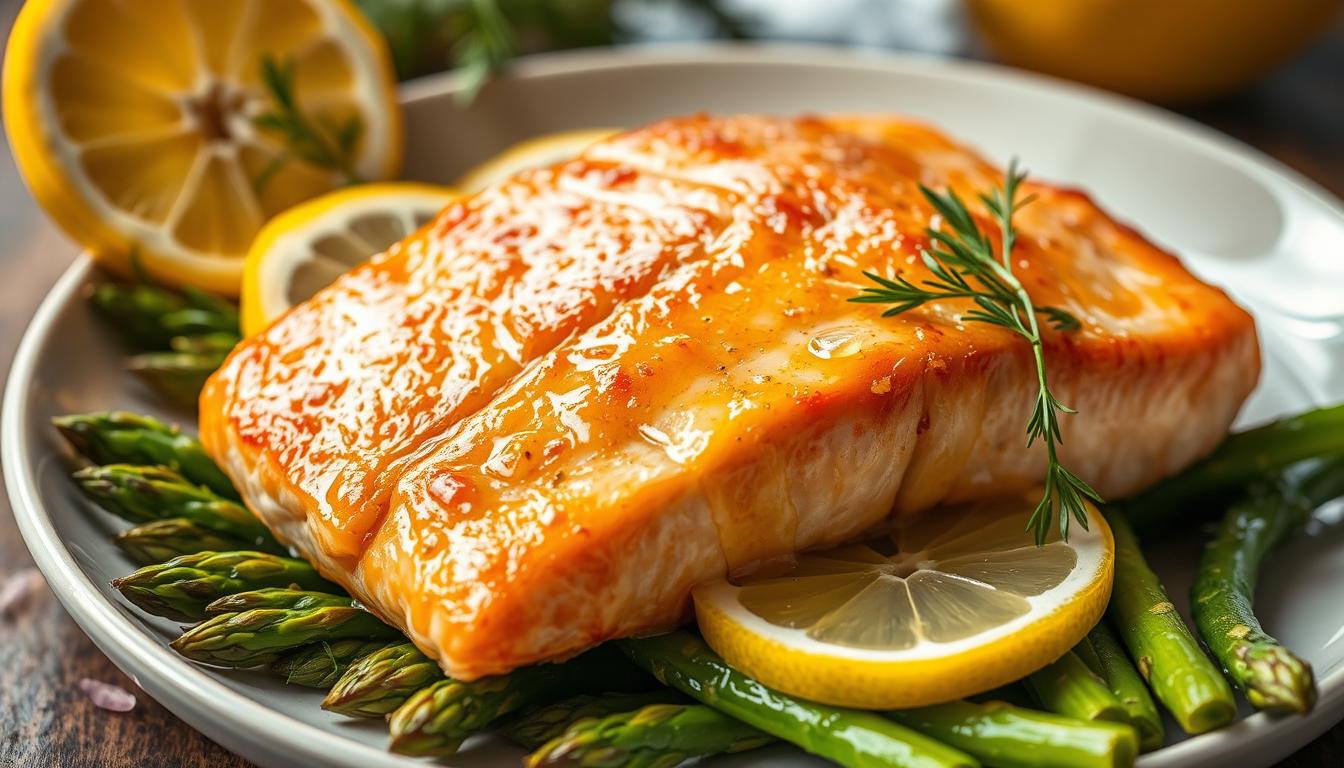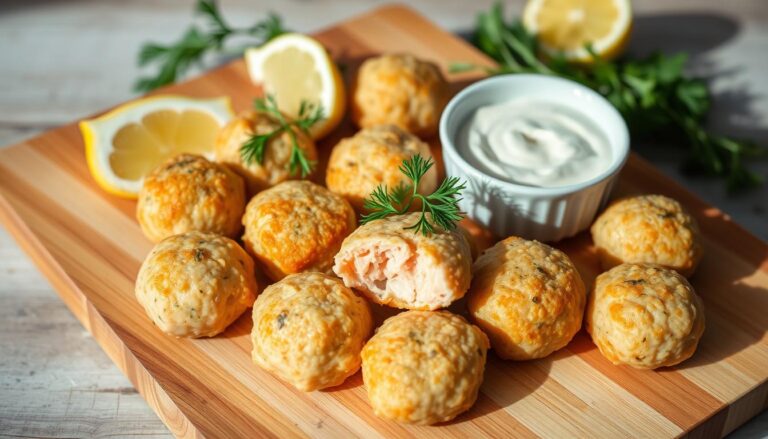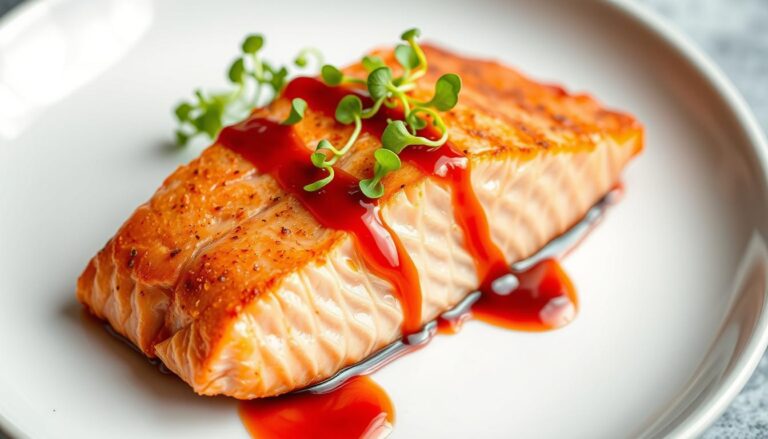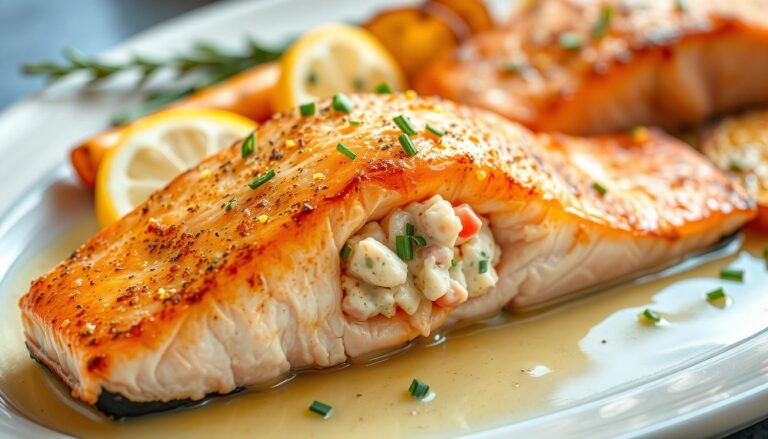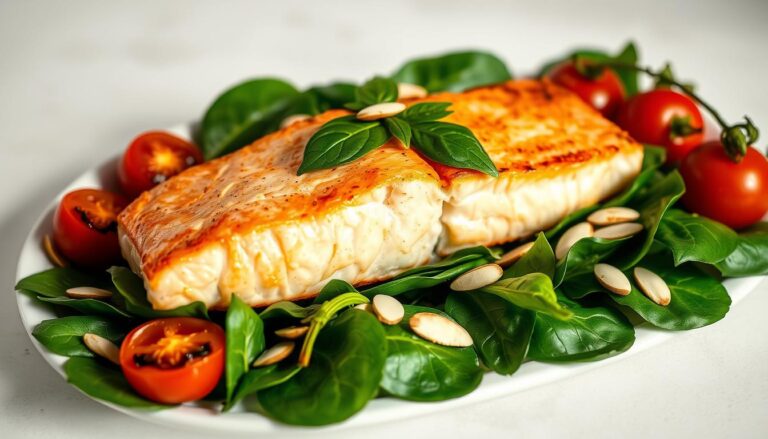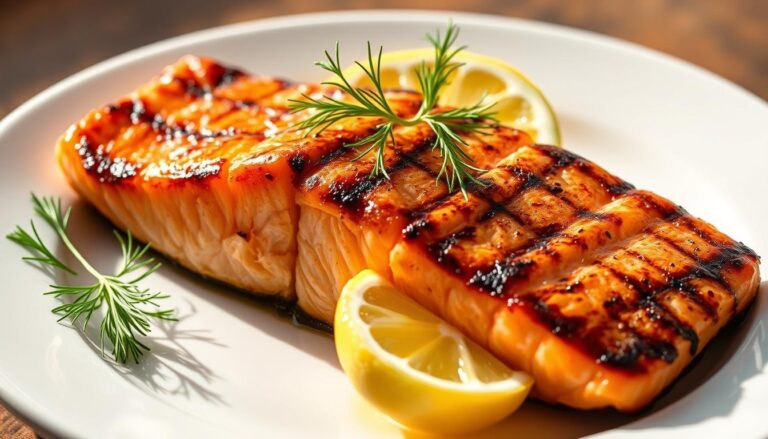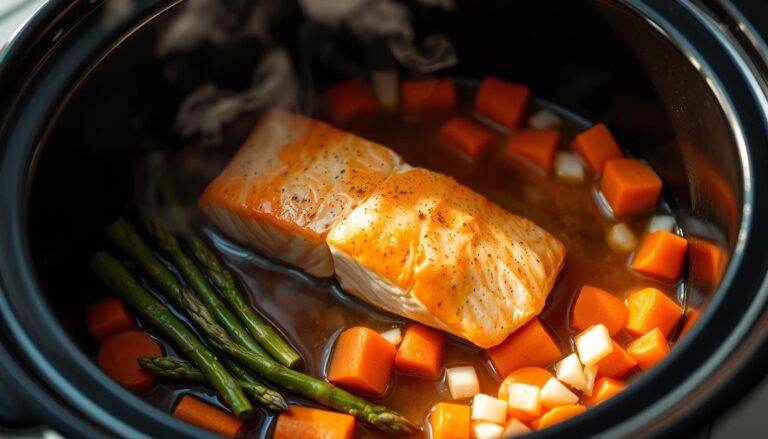6Lemon Butter Salmon: A Flavorful Delight
Every home cook knows that magic happens when simple ingredients come together perfectly. My first encounter with lemon butter salmon changed my kitchen from ordinary to extraordinary. The delicate fish, kissed by bright citrus and rich butter, created a dish that spoke directly to my heart and taste buds.
Salmon recipes have a special way of elevating home cooking, and lemon butter salmon stands out as a true culinary gem. Whether you’re a seasoned chef or a kitchen novice, this recipe promises to deliver restaurant-quality flavor right to your dining table. The combination of tender salmon and zesty lemon butter sauce creates a meal that’s both sophisticated and incredibly satisfying.
Preparing lemon butter salmon isn’t just about cooking—it’s about creating an experience that brings comfort and excitement to your meal. With the right techniques and ingredients, you’ll transform a simple piece of fish into a memorable dining adventure.
Table of Contents
Key Takeaways
- Lemon butter salmon combines simplicity with gourmet flavor
- Perfect for both experienced and beginner cooks
- Requires minimal ingredients for maximum taste
- Versatile dish that works for weeknight dinners or special occasions
- Offers a healthy and delicious protein option
Understanding the Perfect Salmon Selection
Choosing the right salmon is key to making tasty seafood dishes. Whether you’re baking salmon or trying new recipes, picking the best fish is crucial. It makes your cooking experience better.
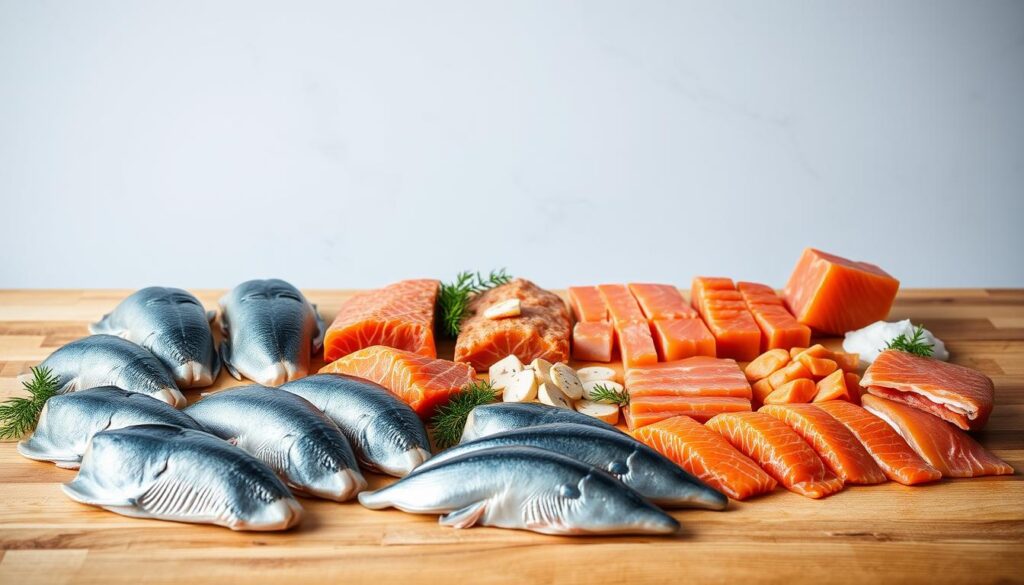
Salmon has different types, each with its own special qualities. Knowing these differences helps you pick the right fish for your meal.
Different Types of Salmon
There are several popular salmon varieties:
- King Salmon (Chinook): Known for rich, buttery flavor and high fat content
- Sockeye Salmon: Vibrant red color with a firm texture
- Coho Salmon: Milder taste, perfect for those new to seafood dishes
- Atlantic Salmon: Most commonly farmed, widely available in markets
Fresh vs. Frozen Salmon Tips
Deciding between fresh and frozen salmon can be hard. Fresh salmon usually tastes better, but good frozen salmon is also a great choice.
- Fresh salmon should have a bright, vibrant color
- Frozen salmon can be just as nutritious when properly stored
- Check packaging dates for frozen options
Quality Indicators to Look For
When picking salmon for your baked salmon recipe, look for these signs:
- Firm, elastic flesh that springs back when touched
- Bright, consistent color without brown or gray spots
- Clean, fresh ocean smell
- Moist appearance without dried edges
By carefully choosing your salmon, you’ll make a delicious and memorable seafood dish. It will surely impress your guests.
Essential Ingredients for Lemon Butter Salmon
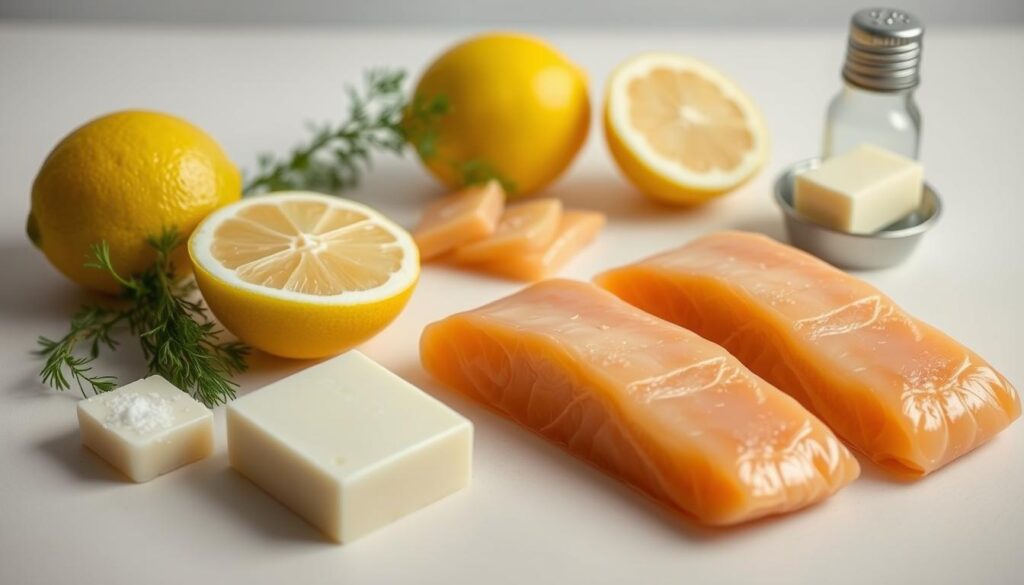
Starting with the right ingredients is key to making tasty salmon recipes. Your lemon butter sauce needs fresh, top-notch parts to highlight the salmon’s flavors.
For a standout lemon butter salmon, pick the best ingredients. Focus on a few important items that turn a basic fish dish into a fancy meal.
Key Ingredients Breakdown
- Fresh salmon fillets (wild-caught preferred)
- Unsalted butter
- Fresh lemons (for juice and zest)
- Garlic cloves
- Fresh herbs (parsley or dill)
Quality is crucial when making your lemon butter sauce. Choose high-fat European-style butter for a richer taste. Go for organic lemons for the best zest and juice.
| Ingredient | Recommended Quantity | Quality Tip |
|---|---|---|
| Salmon Fillet | 6-8 oz per serving | Choose fresh, skin-on fillets |
| Butter | 4 tablespoons | Use unsalted, high-fat content |
| Lemon | 1-2 medium lemons | Fresh, organic preferred |
Choosing the right ingredients can make your lemon butter sauce go from good to great. Fresh herbs and quality butter are the magic ingredients for a salmon dish that will wow everyone.
The Art of Making Lemon Butter Sauce
Making the perfect lemon butter sauce is a skill that can make your salmon dish stand out. It’s all about finding the right mix of ingredients. This turns a simple meal into something special.
Butter and Seasoning Ratios
When making your lemon butter sauce, being precise is key. Here’s what you need:
- 4 tablespoons unsalted butter
- 2 tablespoons fresh lemon juice
- 2 cloves minced garlic
- Pinch of salt and white pepper
Sauce Consistency Tips
To get the perfect lemon butter sauce, follow these steps:
- Melt butter slowly over low heat to avoid separation.
- Whisk constantly to make a smooth sauce that sticks well to your salmon.
Flavor Enhancement Techniques
Here are some tips to make your sauce even better:
- Use freshly squeezed lemon juice for a bright taste.
- Roast garlic a bit to soften its sharpness.
- Add a splash of white wine for extra depth.
- Finish with fresh herbs like parsley or dill.
The secret to a great lemon butter sauce is finding the right balance. You want a sauce that enhances the salmon’s flavor without overpowering it.
Step-by-Step Cooking Method
Preparing salmon oven lemon garlic style needs careful attention. Your perfect baked salmon starts with choosing a high-quality fish. Then, prepare it with precision.
Before you start cooking, gather these essential tools and ingredients:
- Fresh salmon fillet
- Baking sheet
- Parchment paper
- Lemon slices
- Garlic cloves
- Olive oil
- Salt and pepper
Follow these step-by-step instructions for delicious baked salmon:
- Preheat your oven to 400°F
- Line a baking sheet with parchment paper
- Pat salmon dry with paper towels
- Brush salmon with olive oil
- Season with minced garlic, salt, and pepper
- Arrange lemon slices on top of the fillet
- Bake for 12-15 minutes until fish flakes easily
Pro tip: Check your salmon’s internal temperature. It should reach 145°F for perfect doneness. Overcooking can make your salmon dry and tough.
Your baked salmon will be moist, flavorful, and ready to impress even the most discerning dinner guests.
Pan-Searing Techniques for Perfect Results
Mastering pan-searing is key to making delicious salmon recipes. Knowing how to control temperature and technique can turn a simple fish into a gourmet dish. Easy salmon recipes depend on mastering the art of cooking salmon just right.
Professional chefs say that pan-searing needs precision and focus. The right method can give you a crispy outside and a soft inside.
Temperature Control Guidelines
Choosing the right pan temperature is vital for your salmon recipes. Follow these tips for the best results:
- Preheat your skillet to medium-high heat
- Look for a temperature around 375-400°F
- Use a heavy-bottomed pan for even heat distribution
Timing and Flipping Methods
Timing is crucial in making easy salmon recipes. Here are some expert tips:
- Cook skin-side down first for 3-4 minutes
- Flip only once to maintain fish integrity
- Cook for an additional 2-3 minutes on the flesh side
Achieving Crispy Skin
The secret to crispy salmon skin is in these steps:
| Technique | Result |
|---|---|
| Pat salmon skin dry | Reduces moisture for crispier texture |
| Use minimal oil | Prevents sogginess |
| Press gently with spatula | Ensures even skin contact with pan |
Pro tip: Let the salmon rest for a minute after cooking to lock in those delicious juices and maintain its perfect texture.
Pairing Suggestions and Side Dishes
Make your lemon butter salmon dinner special with the right side dishes. These can turn your meal into a memorable experience. The right sides can also bring out the best in your salmon, making your plate both tasty and healthy.
For a meal that’s both delicious and nutritious, try these side dishes:
- Roasted Vegetable Medley: A colorful mix of asparagus, Brussels sprouts, and bell peppers
- Quinoa pilaf with fresh herbs
- Light Mediterranean-style salad
- Garlic-infused cauliflower rice
Choosing the right wine can make your salmon dinner even better. Light white wines like Pinot Grigio or Sauvignon Blanc are great. If you prefer not to drink wine, sparkling water with a bit of lemon is a tasty alternative.
When planning your meal, mix different textures and flavors. The rich salmon goes well with crisp, fresh sides. These sides add contrast and more nutrients to your meal.
| Side Dish | Flavor Profile | Nutritional Benefit |
|---|---|---|
| Roasted Asparagus | Earthy, Slightly Bitter | High in Fiber, Vitamins |
| Quinoa Pilaf | Nutty, Subtle | Complete Protein, Minerals |
| Mixed Green Salad | Fresh, Light | Low Calorie, High Nutrients |
Remember, the secret to a great salmon dinner is to be creative and listen to your taste. Try different sides to find the perfect mix of flavors and textures for you.
Nutritional Benefits and Health Considerations
Lemon butter salmon is a top choice for a healthy meal. It’s full of nutrients and tastes great. This dish is perfect for those who care about their health and taste.
Eating salmon is good for your body. It has nutrients that help keep you healthy and strong.
Protein and Omega-3 Content
Salmon is a great source of protein. It helps build and repair muscles. Each serving gives you:
- Approximately 22-25 grams of high-quality protein
- Rich omega-3 fatty acids (EPA and DHA)
- Essential amino acids for cellular repair
Caloric Information
Knowing the calories in lemon butter salmon is important. A serving has about 300-400 calories. This depends on how it’s made and the size of the serving.
Dietary Considerations
Salmon fits well into many diets. It works with:
- Keto and low-carb diets
- Mediterranean eating plans
- High-protein nutrition strategies
Pro tip: Choose wild-caught salmon when possible to maximize nutritional benefits and minimize potential contaminants.
Storage and Reheating Guidelines
Keeping your baked salmon tasty means storing and reheating it right. Knowing how to do this can really help keep your dish fresh and flavorful.
It’s important to store your salmon properly to keep it fresh and safe. Let it cool down to room temperature after cooking. But, don’t leave it out for more than two hours. Store it in an airtight container to keep moisture in and the texture soft.
- Refrigerate salmon within 2 hours of cooking
- Use shallow, airtight containers for storage
- Keep refrigerated salmon for up to 3 days
When reheating salmon, be gentle to avoid drying it out. High heat can make the fish tough and dry.
| Reheating Method | Temperature | Time |
|---|---|---|
| Oven | 275°F | 10-15 minutes |
| Microwave | 50% power | 30-45 seconds |
Pro tip: Add a splash of water or lemon juice when reheating to help retain moisture in your salmon recipes.
Always check the salmon’s internal temperature after reheating. It should be at least 145°F for safety. Follow these tips to enjoy your salmon dishes days after you first make them.
Common Cooking Mistakes to Avoid
Getting the perfect lemon dill salmon needs precision and focus. Many home cooks make big mistakes that ruin a dish that could be great.
Salmon recipes need careful handling. The biggest mistake is overcooking, which makes the fish dry and tough. Chefs say to watch your salmon closely and take it off heat when it’s just a bit opaque in the middle.
- Avoid cooking salmon at extremely high temperatures
- Never skip patting the fish dry before cooking
- Use a meat thermometer to check internal temperature
- Let the salmon rest for a few minutes after cooking
Keeping the right temperature is key for lemon dill salmon. Too high heat can burn the outside while leaving the inside raw. Cook at medium-high heat and look for when the fish turns from clear to opaque.
Seasoning is also very important in salmon recipes. Not enough seasoning makes the fish taste bland, while too much can be overpowering. Use fresh herbs like dill lightly and add a touch of lemon and butter.
Knowing these common mistakes helps you improve your salmon cooking. You’ll make dishes that taste like they’re from a restaurant, right in your kitchen.
Conclusion
Your journey with lemon butter salmon baked dishes ends with newfound confidence and excitement. This recipe turns a simple seafood meal into a special dining experience. You’ve learned how to make salmon dinner ideas that rival restaurants.
Remember, practice makes perfect with lemon butter salmon. Each time you cook, you’ll get better at controlling temperature, seasoning, and presentation. Start with quality salmon, use fresh ingredients, and cook with creativity and patience.
Try different seasonings, herbs, and sides to make your lemon butter salmon unique. Whether it’s for a quick dinner or a special event, this dish is both healthy and delicious. Enjoy exploring new cooking techniques and the tasty results of your culinary journey.
Your new skills will surely impress family and friends, making any meal memorable. Dive into salmon cooking with confidence and passion.

